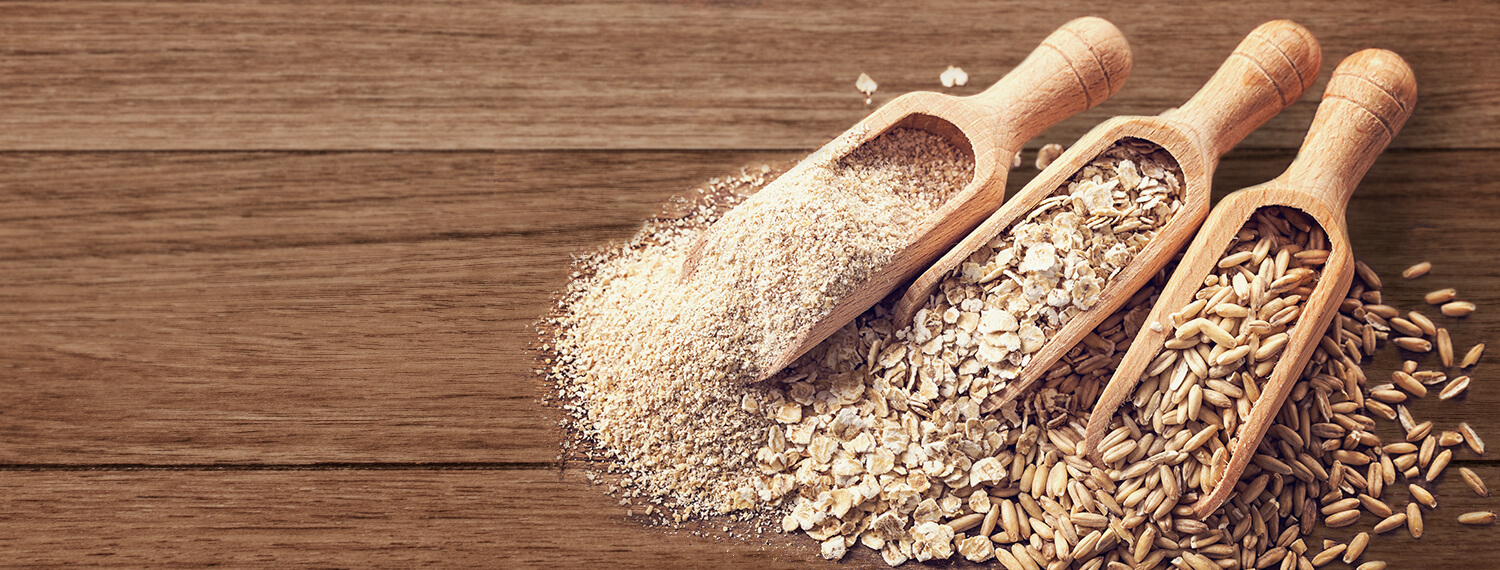We are here today to talk about oats.
Whether they are served as a breakfast, bread or dessert, oats are an integral part of our lives and a food legend that has been around for centuries.
But even though oats are everywhere, most of us rarely think about them.
Let’s take some time to get reacquainted with this delicious and versatile nutritional powerhouse.
What Are Oats Anyway?
The scientific name for oats is Avena sativa.
They are a hearty cereal grain that can thrive even in poor conditions where other crops are unable to grow.
After being harvested and cleaned, they are then hulled. This process keeps their bran and germ, thus permitting them to retain a large part of their fiber and nutrient content.
Different processes are used to produce various types of oats. In general, the less processed the oats are, the more fiber and nutrients they contain.
Here are some of the most familiar oat products:
- Oat Groats: Groats are oat kernels which are often used for breakfast cereal or stuffing. They may also be used to prepare homemade oat milk.
- Steel-Cut Oats: Sometimes called Irish or Scottish oats, they are produced with steel blades that thinly slice the oat kernel which helps water to penetrate. They have a dense and chewy texture and need to be cooked longer than other varieties.
- Old-Fashioned Oats: These oats have been steamed and rolled to have a flatter shape. They are softer and cook quicker.
- Quick-Cooking Oats: These are produced like the old-fashioned oats with the exception that they are cut finely before rolling.
- Instant Oatmeal: Instant oatmeal is made by partially cooking the grains and then rolling them very thinly.
- Oat Bran: The outer layer of the grain (under the hull), oat bran can be added to recipes or cooked on its own as a hot cereal.
- Oat Flour: Oat flour is often combined with other gluten-free flours and used to make bread and other baked goods.
The History of Oats
Originating from ancient China, oats date back to 7000 B.C. and are one of the first cereals cultivated and consumed by man.
And while the Chinese began the oat tradition, it was the Greeks who first ate them as porridge.
In addition, even though oats have been around for centuries, their use really took off when they arrived in Europe.
One of the places they were most popular was Scotland where they became the staple grain, as they were easier to grow than wheat, given the country’s hostile climate.
In fact, oats became so widespread there that the old Scottish universities even had a holiday called Meal Monday where students returned home to their farms to collect more oats for food.
The Scotts brought oats to Northern America in the 17th century, and today 75 percent of the American population either eats them for breakfast or at least has a box in their cupboards.
Why Oats Are Good for You
Oats’ distinctive nutty, sweet flavor is one of the main reasons they have been beloved for centuries across the globe.
And along with being great-tasting, they also contain some important health benefits.
Oats are good for you because they may:
- Reduce the Risk of Heart Disease: many studies have shown that eating oats every day may lower total and LDL-cholesterol and prevent atherosclerotic buildup in the arteries.
- Lower the Risk of Type 2 Diabetes: the intake of whole grains, including oats, has been shown to lower fasting glucose levels in both prospective studies and randomized clinical trials.
- Help Control Weight: oats are loaded with soluble fiber, which forms a gel in the stomach and can make you feel fuller longer and aid in weight control.
- Improve Immune Function: Oats contain antioxidant and anti-inflammatory nutrients as well as soluble fibers known as beta-glucans, which improve immune function and have been linked to the inhibition of tumors.
Oats are an easy, satisfying food and an excellent addition to your plant-based lifestyle.
Experiment with the various methods of cooking this nutritional legend so you can enjoy both its deliciousness and health benefits.


